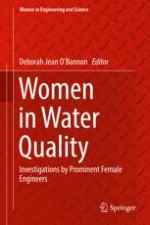2020 | OriginalPaper | Buchkapitel
3. Improving Drinking Water Quality in Rural Communities in Mid-Western Nepal
verfasst von : Sara Marks, Rubika Shrestha
Erschienen in: Women in Water Quality
Aktivieren Sie unsere intelligente Suche, um passende Fachinhalte oder Patente zu finden.
Wählen Sie Textabschnitte aus um mit Künstlicher Intelligenz passenden Patente zu finden. powered by
Markieren Sie Textabschnitte, um KI-gestützt weitere passende Inhalte zu finden. powered by
